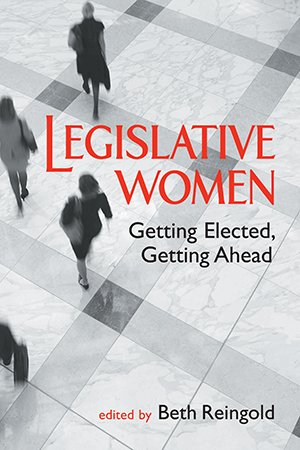This wide-ranging study grapples with the increasingly complex array of opportunities and challenges that face women today as both legislative candidates and elected officials.
Offering cutting-edge, original research, Legislative Women expands our knowledge on an array of critical topics. The contributors address everything from campaign finance to the significance of race and ethnicity, from media relations to how women advance within the ranks of the elite, and more. As they examine exactly how and in what circumstances gender matters, they bring new depth to the study of women and politics.
Beth Reingold is associate professor of political science and women's studies at Emory University. She is author of Representing Women: Sex, Gender, and Legislative Behavior in Arizona and California.
"Not only advances our understanding of the outlying American case, but also provides opportunity for greater understanding of women's political representation and legislative behavior."—Julie Moreau and Melanee Thomas, Feminist Collections
"A valuable teaching tool for both undergraduate and graduate courses." —Kira Sanbonmatsu, The California Journal of Politics & Policy
"The latest installment in a fascinating ongoing saga.... All readership levels."—Choice
"This book is a particularly timely examination of the rapidly changing landscape for women in politics."—Vanessa Bush, Booklist
"Especially useful for those studying and teaching in the field of women and politics, this work offers several fresh areas of examination."—Library Journal
"An excellent volume that moves the research forward on many of our most pressing questions. This book will have a natural audience in women and politics classes, as well as in courses on Congress or state legislatures." —Sarah E. Brewer, American University
"This important book addresses problematic gaps in our understanding of women and politics.... While showcasing excellent research, the engaging and accessible writing will not overwhelm students." —Laurel Elder, Hartwick College
"Deftly combining multiple research methods and covering understudied lines of inquiry, this book makes an important contribution and will no doubt provoke new debate and new avenues of research in the field of women and politics." —Melissa Deckman, Washington College






